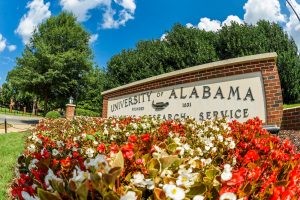Two groups comprised of representatives from various professional backgrounds and roles on campus, including students, faculty and staff, are advising UA President Stuart R. Bell on the University’s response to the COVID-19 pandemic.
 The Situational Response Team, established by Bell, monitors and addresses issues that may arise by continuously assessing UA’s response plan, reviewing important science and data points, recommending adjustments and advising leadership.
The Situational Response Team, established by Bell, monitors and addresses issues that may arise by continuously assessing UA’s response plan, reviewing important science and data points, recommending adjustments and advising leadership.
Consisting of representatives and experts from Bell’s office, Academic Affairs, Finance and Operations, Health Sciences, IT, Research, Strategic Communications and Student Life, the team will help adjust policies and directives to better counter the evolving pandemic.
“Members of the Situational Response Team were selected to provide a broad range of perspectives,” said Chad Tindol, UA’s chief administrative officer. “We wanted to include individuals who understand the impact COVID-19 may be having on various aspects of UA’s ability to fulfill its mission.”
The President’s Advisory Committee, originally created to put together UA’s return plan, has transformed into a sounding board for the discussion of COVID-19’s impact on the campus community and return plan. The committee has grown in both membership and duties as the fall semester continues.
“The Advisory Committee includes a broad snapshot of the campus community,” said Tindol. “The group includes the elected heads of the Faculty Senate; Professional Staff Assembly; Office, Clerical and Technical Staff Assembly; Student Government Association; and Graduate Student Association.”
The committee helps leaders understand the unique situational perspectives of the diverse student and employee bodies, and aids in developing the best adjustments needed to accommodate their needs. It’s also a platform for those representatives to have discussions with UA’s team of medical and epidemiological professionals, administrators and other experts.
Both groups are focused on helping UA have a successful fall semester, and meet regularly to best and quickly serve the campus community.
